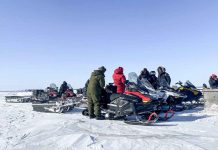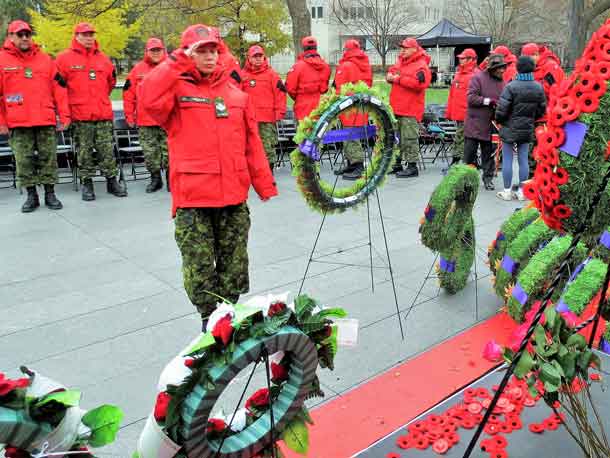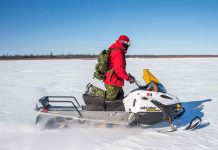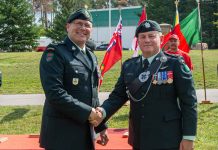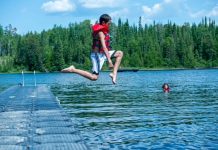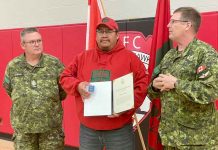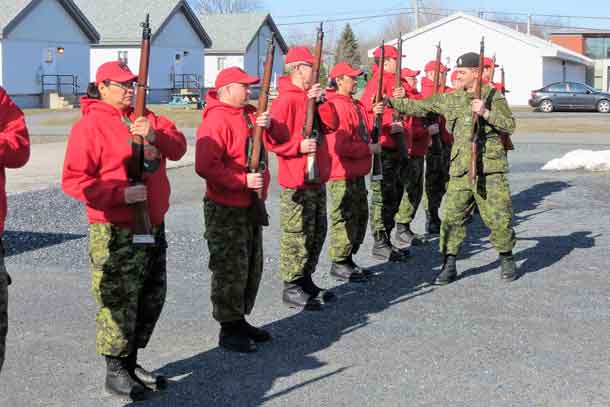

THUNDER BAY – A diverse group of 36 Canadian Rangers from across Canada`s North has completed a demanding seven-day national Canadian Ranger basic military indoctrination course, the first of its kind.
Six of the students were from northern Ontario. They were Master Corporal Linda Kamenawatamin from Bearskin Lake, Corporal Michael Tait from Sachigo Lake, and Rangers Alex Barkman and Eric Kanakakeesic, both from Sachigo, Donovan Meeseetawageesic from Fort Hope, and Brandon Sawanas from Sandy Lake.
Their days began with being in formation at 6.30 a.m. before going to breakfast. It was a challenge for many who were used to the more relaxed starting times for the day in their home communities.
“Getting up that early is very tiring,” said Master Corporal Linda Kamenawatamin. She has been a Ranger for six years and had been unable to attend a basic training course in her region.
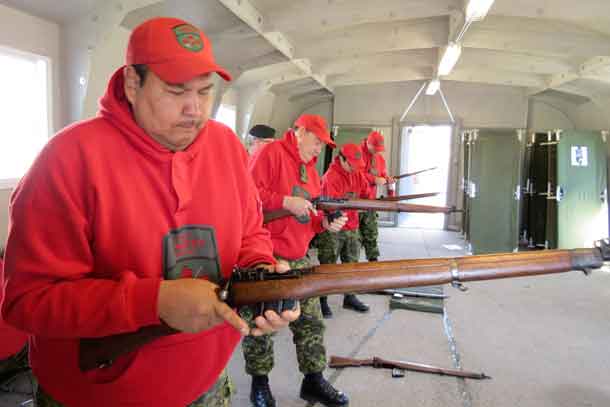
“I’m going to tell people when I get back home that I was on a very good course and that I learned quite a good bit and that I met people from all over Canada,” she said. “I prefer my food back home to the army food. But would I like to do the course again? Yes, I would. It’s been very interesting. I’m going to pass on what I learned here when I get back home.”
Basic training is usually conducted by each of the five Canadian Ranger Patrol Groups across the country. The pilot course, held at Farnham Garrison, near Montreal, was an experiment to see whether the regional courses should be replaced by a standardized national course.
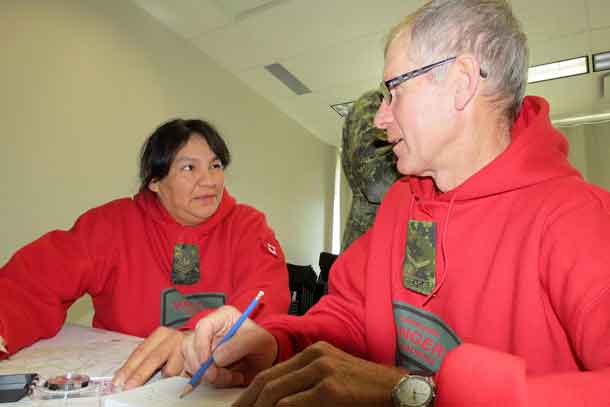
“I think it went well,” said Chief Warrant Officer Yves Proulx of 2nd Canadian Ranger Patrol Group, which commands the Rangers of Quebec and hosted the course. “The main function of the course is to produce standardization for Rangers from the east to the west coasts of Canada and from the north and I think it did that. It’s been about giving the right tools to our Rangers to do their tasks properly on the ground.”
The Rangers came from remote and isolated communities. Some were recent recruits with no training and some had varying degrees of service but had been unable to attend basic training courses within their regions. They came from fishing villages in Newfoundland and Labrador and from First Nation, Inuit and Metis communities from across the North, as well as from small but isolated non-indigenous communities, and from a range of backgrounds.
One classroom session was interrupted when an urgent phone call came in for a student from the Yukon. The army instructor wanted to know who was so important to be allowed to interrupt military training. “It’s from my premier,” said the student. “He needs to talk to me about an environmental issue.” He was allowed to take the call.
The intensive training included basic military knowledge and the role of the Rangers in providing military support for national security and civil protection. They learned drill, how to set up a military-type tent camp, routines while on patrol, first aid, search and rescue, how to prepare emergency landing strips and landing areas for aircraft and helicopters, and how to use the standard .303 calibre Lee-Enfield bolt action rifle.
“It’s an impressive course,” said Lieutenant-Colonel Matthew Richardson, commanding officer of the Rangers in Ontario, during a visit. “The Rangers bring their different experiences, traditions, and knowledge and that gets passed on to others on the course. That’s not just in the formal sense but in the evenings when they’re sitting around chatting and socializing and telling stories. They’re learning a lot about Canada.
“I know my Rangers on this course are going to be taking a lot home with them and they will be passing it on.”
(Sergeant Peter Moon is the public affairs ranger for 3rd Canadian Ranger Patrol Group at CFB Borden.)
Photos by Sergeant Peter Moon.

